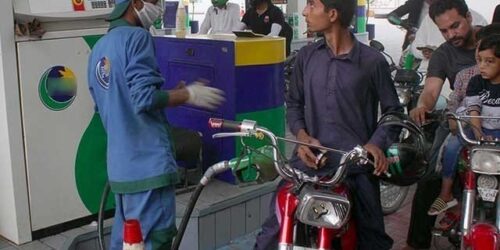Prime Minister Imran Khan on Saturday turned down a proposal of the Oil and Gas Regulatory Authority (Ogra) for increasing fuel prices from November 1.
In a summary sent to the prime minister, Ogra had proposed to increase the price of petrol by Rs11.53 per litre, high-speed diesel (HSD) by Rs8.49, kerosene oil by Rs6.29 and light-diesel oil (LDO) by Rs5.72 from the next month.
It was stated that Ogra had proposed the increase in view of the rising oil prices in the global market. However, PM Imran rejected the proposal in a bid to provide relief to the public amid the rising inflation.
Rejecting the proposed increase, the prime minister said in a statement that the government was according high priority to providing relief to the people, instead of overburdening them.
As the world moves towards economic recovery in wake of the arising post-Covid situation, energy prices have been soaring across the globe. On October 16, the government increased the prices of petroleum products up to Rs12.44 per litre.
Pakistan is a net importer of petroleum products. Therefore, any increase in the world oil prices impacts the domestic prices.
In addition, Pakistani consumers are compelled to pay the cost of depreciation of rupee against the dollar.
After the decision to maintain the current prices, petrol will be available at Rs137.79 per litre, HSD at Rs134.48 per litre, kerosene oil at Rs110.26 per litre and LDO at Rs108.35 per litre.
Kerosene oil is widely used by the armed forces in remote areas, like the northern parts of the country, where it is used for cooking because liquefied petroleum gas (LPG) is unavailable.
HSD is widely used in the transport and agriculture sectors. Therefore, any fluctuation in the price of diesel poses a direct inflationary impact on consumers.
LDO is used for industrial purposes. Petrol is used in motorcycles and cars — an alternative to compressed natural gas (CNG).
The country’s total petrol and HSD demand has been estimated at 890,000 metric tons and 834,000 metric tons respectively for the month of November.
This estimate is projected keeping in view the CNG closure. This estimate includes an additional requirement of 50,000 litres of petrol in place of CNG.





